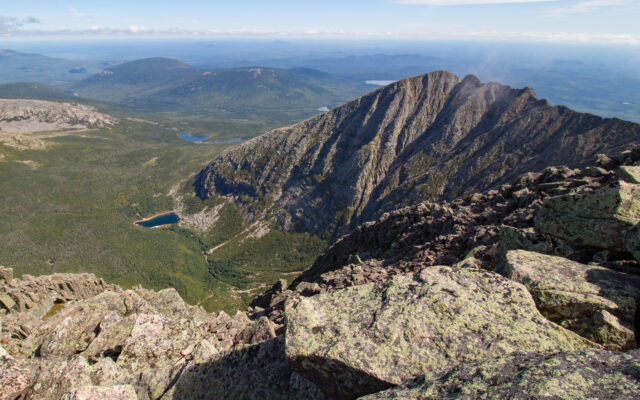
To enjoy Maine’s outdoors, be sure you’re prepared for what can go wrong
By BDN Editorial Board
Maine Game Wardens were involved in the rescues of two hiking parties on Saturday, April 3. The language used by the warden service to describe what went wrong in each case was strikingly similar.
A family of five from New Jersey was rescued from Tumbledown Mountain in western Maine after they were unable to find the trail down in the snow and ice as the sun set.
“This family was not prepared for the conditions they experienced on this hike. There still is ice snow, and sub-freezing temperatures on the trails of many Maine mountains,” Maine Game Warden Sergeant Scott Thrasher said in a press release. “These conditions can be extremely dangerous for those who are unprepared.”
On the same day, wardens and others rescued a man from Phippsburg who fell into the water while hiking on the Appalachian Trail in Township E. He was hypothermic and unable to walk when the rescuers reached him.
“[He] did not have appropriate clothing or hiking gear for this time of year,” Thrasher said in the same press release. “Had [he] been unable to send a text for help, it is unlikely he would have survived the night in the woods.”
As the COVID-19 pandemic curtailed many indoor and group activities, Americans have turned to outdoor activities, such as hiking, camping and boating, in some cases for the first time. The Maine Bureau of Parks and Lands reported a record number of both day-use visitors and campers in 2020. Visits to the sites maintained by the bureau topped 3 million.
“Everyone wants and needs to get outside, and Maine state parks are some of the best destinations to relax and reinvigorate,” Andy Cutko, director of the Maine Bureau of Parks and Lands, said in January. “In particular, with various travel limitations in place, it was great to see so many Maine families discovering our state parks for the first time.”
The National Park Service system, including Acadia National Park, saw an overall decrease in visitors in 2020, in part because many sites were closed for part of the year because of the pandemic. However, 15 parks set records for visitation last year.
In Wyoming, year-round recreation in the Wind River range has also been on the increase, putting a strain on local search and rescue groups.
“If people are going to do this, then they’ve got to prepare themselves and we’ve got to do more public education to try to prepare these people,” Kenna Tanner, the director and only employee of Tip Top Search and Rescue, told the New York Times.
In the last year, her group has rescued campers in shorts during a blizzard, a base jumper who misjudged his leap from a cliff, a snowmobiler buried up to his neck in an avalanche and a woman who felt too tired to finish her hike.
“They come here and they’re like, ‘It’s beautiful, it’s a big open space.’ And it is,” said Lesta Erickson, a Tip Top volunteer. “But it’s also dangerous.”
While we strongly support spending time enjoying America’s great outdoors, preparation is key to reducing risks. Even what seems like a short day-hike can turn dangerous if weather conditions worsen or a hiker is injured or unfamiliar with the area.
In October, BDN Outdoors columnist Aislinn Sarnacki compiled a list of 14 tips to make hiking safer. Here are a few: Research your hike before you go to ensure it is within your ability and that you are prepared for a change in weather. Carry lots of water and snacks. Pack a light and enough gear to spend a night in the woods. And, if things aren’t going as planned, turn around.
Sarnacki also offered simple tips for an essential first-aid kit for outdoor activities.
As summer approaches, we encourage residents and visitors to enjoy the many outdoor activities that Maine has to offer. Taking a few precautions and being prepared can help ensure these trips end with great photos and happy memories, rather than rescue efforts.